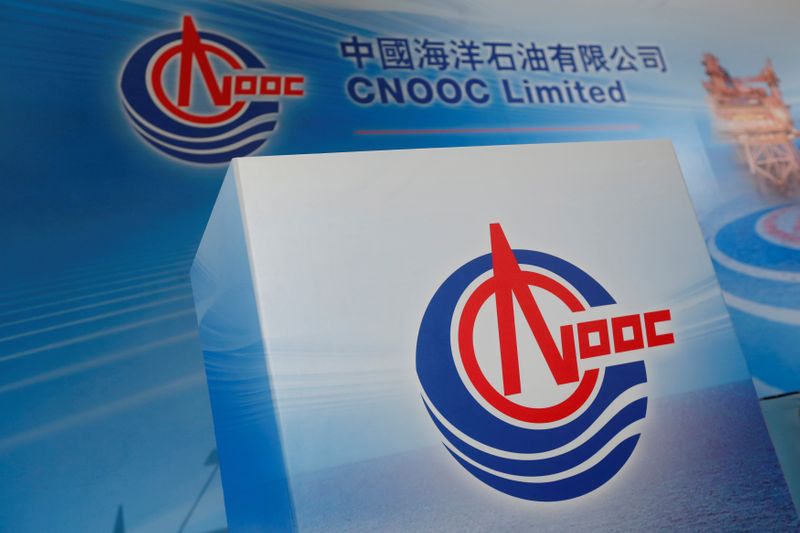SHANGHAI (Reuters) - As U.S. investors dump shares in Chinese companies blacklisted by outgoing President Donald Trump, bargain hunters in China are taking the opposite side of that trade, wagering that a Joe Biden presidency will reverse the investment ban.
Trump signed an executive order on Nov. 12 that bars U.S. securities investment in Chinese companies allegedly owned or controlled by the Chinese military.
The outgoing U.S. president is considering expanding that blacklist of 35 firms to include Alibaba (NYSE:BABA) and Tencent.
As U.S. investors rush to sell shares in the sanctioned companies and their subsidiaries before the executive order takes effect on Jan. 11, Chinese investors are swooping in.
Since the order was announced, holdings by mainland Chinese in the Hong Kong-listed shares of China Railway Construction Corp (CRCC) and CNOOC (NYSE:CEO) Ltd via the China-Hong Kong Connect roughly tripled, according to bourse operator Hong Kong Exchanges and Clearing Ltd.
Other blacklisted stocks, including railway equipment maker CRRC Corp, China Communications Construction Co and semiconductor giant SMIC also witnessed heavy money inflows.
Zhu Haifeng, a veteran Chinese retail investor, said he bargain hunted in CNOOC and CRRC, which both had lost as much as 27% since the Trump order.
"They are globally-competitive companies, and are China's 'name cards'," said Zhu, who sees limited impact on the companies' fundamentals from the U.S. sanctions.
Wan Chengshui, portfolio manager at Hangzhou-based Golden Eagle Fund Management Co, said he plans to increase his holdings in Tencent, if prices fall further.
"Trump politicized everything in the name of national security. When Biden takes office, I think things will take a turn for the better," said Wan, predicting Trump's executive order will be nullified, and sanctions against Tencent and Alibaba won't materialize.
Wan is not alone.
When Tencent slumped nearly 5% in Hong Kong following news of the potential blacklisting on Thursday, Chinese investors ploughed a net HK$4.6 billion ($593.29 million) into its shares via a cross-border trading channel, making it the most actively-traded stock under the scheme that day.
Global index publishers MSCI, FTSE Russell and S&P Dow Jones Index have all scrambled to delete the blacklisted securities from their global benchmarks, forcing passive investors to shed those holdings.
Phillip Wool, head of investment solutions at Rayliant Global Advisors, said investors could find bargains as active investors dump shares to front-run passive outflows.
"Non-U.S. investors will look at prices of those stocks falling and, at some point, decide it's a buying opportunity," Wool said.
Meanwhile, uncertainty lingers around the scope and implications of Trump's executive order, while the gradual expansion of the list is another guessing game, Wool said.
Therefore "there's also a potential opportunity for active investors in terms of outguessing the rest of the market as to how the political situation is going to unfold."
After making U-turns twice this month on the issue, the New York Stock Exchange on Wednesday said it will delist three Chinese telecom companies.
Since NYSE's first delisting announcement on Jan 1, Chinese investors have been adamant buyers. Mainland holdings under Connect in China Mobile (NYSE:CHL) Ltd, China Telecom (NYSE:CHA) Corp Ltd and China Unicom (NYSE:CHU) Hong Kong Ltd, have jumped 37%, 28% and 41%, respectively.

($1 = 7.7534 Hong Kong dollars)
